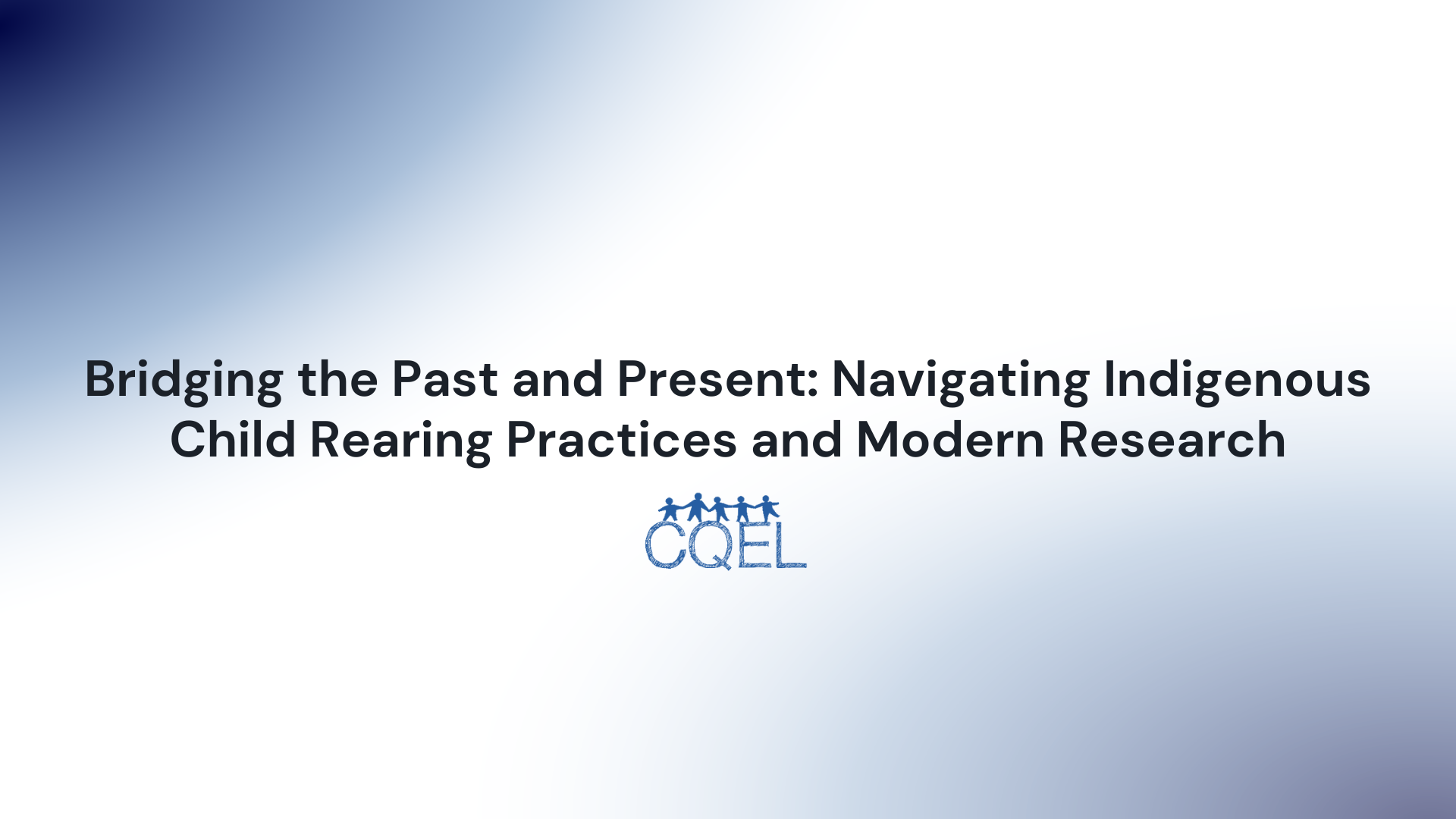Bridging the Past and Present: Navigating Indigenous Child Rearing Practices and Modern Research
In the realm of early childhood education, striking a balance between indigenous child-rearing practices and modern research can be a complex task. Both hold valuable insights and can significantly contribute to the holistic development of a child.

In the realm of early childhood education, striking a balance between indigenous child-rearing practices and modern research can be a complex task. Both hold valuable insights and can significantly contribute to the holistic development of a child. This post aims to explore the intersection of traditional wisdom and contemporary research, offering a comprehensive understanding to those involved in early childcare.
Unveiling the Roots: The Wisdom in Indigenous Child-Rearing Practices
Indigenous child-rearing practices are deep-rooted in their cultural contexts, honed over centuries. Many of these traditions emphasize communal responsibility, spiritual growth, and close ties with nature, fostering an environment of mutual respect and interdependence. For instance, in many Native American tribes, elders play a key role in imparting traditional knowledge and values to children, as outlined in this Child Development NCFR Report.
Unfolding the Science: The Strength of Modern Research
On the other hand, modern child development research is backed by scientific evidence and psychology. It encompasses topics such as early brain development, the impact of nutrition on physical and cognitive growth, and the role of early attachment in emotional wellbeing. Resources like the Harvard Center on the Developing Child provide comprehensive information on these topics.
Creating a Dialog: Respecting Tradition while Embracing Science
The challenge lies in integrating these two perspectives, respecting the cultural roots of indigenous families while also benefiting from scientific advances. This involves acknowledging the validity of indigenous knowledge and creating a space for its inclusion in modern educational practices. An excellent example of such integration is the Head Start Program, which values and promotes cultural responsiveness in early childhood education.
Policy Perspectives: The Role of Legislations and Frameworks
Public policies and legal frameworks also play an essential role in ensuring the rights and cultures of indigenous peoples are respected in childcare settings. In California, the American Indian Child Welfare Act is an example of such legislation, aimed at preserving the cultural identity and wellbeing of Native American children.
Building Bridges: Future Directions for Childcare Providers
As childcare providers, we can strive for a balanced approach that respects and incorporates indigenous wisdom and the insights offered by modern research. We can pave the way for a holistic, culturally sensitive approach to childcare by fostering an open dialogue and mutual respect.
Understanding and appreciating the value in both indigenous child-rearing practices and modern scientific research can enrich our perspectives as educators, caregivers, and advocates for children. Through this integration, we can work towards an inclusive, culturally sensitive, and scientifically informed approach to early childhood care and education.
